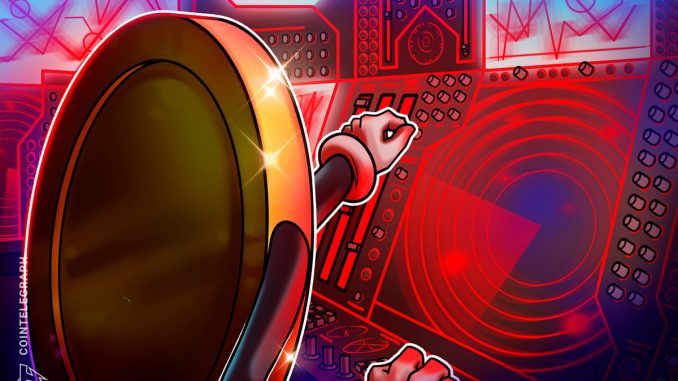
In 2013, the launch of a dog-themed crypto token as a private joke between a couple of software developers was a harmless piece of fun. The fact that Dogecoin (DOGE) has since amassed a market capitalization greater than $13 billion (as of Dec. 13) is beyond the understanding of most investors, but it seems like it’s here to stay. However, the sector that DOGE has inspired is becoming a menace to an industry that needs to evolve.
Memecoins are dangerous. They are dangerous because the large majority of those who put their money into them never see it again; they are dangerous in the way they damage the credibility of the entire cryptocurrency industry; they are dangerous in the way ownership is so highly concentrated, and they are dangerous because they are proliferating.
As of Dec. 13, there are around 1,300 memecoins in circulation with a collective market cap of about $22 billion, a sizable figure. However, look closely at the CoinMarketCap memecoin sector, and you’ll notice that nine of those listing pages contain utterly worthless coins.
This is because most memecoins are unabashed scams. Typically created in the bedrooms of degens, these tokens are designed to capitalize on crypto’s affiliation with social media to rapidly steal people’s money. Whether it’s a Squid Games token — which saw $3.38 million swiped — or coins launched on the deaths of former Berkshire Hathaway Vice Chairman Charlie Munger and former Secretary of State Henry Kissinger, these coins now pump and dump in a weekend, taking millions of dollars with them.
Related: History tells us we’re in for a strong bull market with a hard landing
Projects such as Shiba Inu (SHIBA), Pepe (PEPE), and Bonk (BONK), for example, do not seem to be blatant scams. BONK came at a time when the Solana (SOL) ecosystem was in desperate need of good cheer and appears to be enjoying quite the pump. However, investors in these coins have still lost money — PEPE, for one, shed an eye-watering 62% in one ugly week in May and has not recovered.
Then there was the spectacular rise and fall of Bald (BALD) in August: a meme coin built on Coinbase’s new layer-2 blockchain, Base. Launched on a Sunday morning, BALD had achieved a market cap of $85 million by evening. By Monday the lead developer had pulled his liquidity, sending the token’s price plunging by around 90%.

In addition to being — at best — a form of financial hunger games, memecoins also have no utility: they bear no resemblance to genuine cryptocurrencies like Bitcoin (BTC) or Ether (ETH) in their structure or application. This does not, however, stop the mainstream press from running endless headlines on every blow-up, delighting as they do in portraying digital assets as nothing more than these cynical pranks.
While cryptocurrency in general has an issue with whales, memecoins in particular also suffer from strong concentration. Because memes are always so cheap — usually a tiny fraction of a cent — big investors typically hold enormous bags and can move the market in a single trade. Ethereum creator Vitalik Buterin’s decision to burn $6.7 billion SHIB took out half the circulating supply. It disrupted market dynamics and raised serious questions about market manipulation.
Related: BRC-20 tokens are presenting new opportunities for Bitcoin buyers
Memecoins, in short, are becoming less and less funny. While once we could all have a good laugh at the latest coin dedicated to Elon Musk’s dog, the scale at which these disasters are unfolding is leading to steeper and steeper losses. But does this mean we should ban them outright? No. There is a place for memecoins in crypto.
Just as we can in the real world, all users in crypto should be free to gamble their money away if they so choose. As much as regulators love to harangue the financial industry, they see no problem in allowing anyone to bet their house on a horse. If this is how you want to spend your money, it’s a free world.
However, make no mistake: memecoins are gambling, plain and simple. They are not investments, they are not valuable or useful. They attract outsized negative attention from the press that makes us all look bad. And for every lucky person that makes a million on a meme, nine will lose. It might be that one day we all fly to the moon with DOGE, but it will most likely be in Elon’s rocketship, not our wallets.
Lucas Kiely is the chief investment officer for Yield App, where he oversees investment portfolio allocations and leads the expansion of a diversified investment product range. He was previously the chief investment officer at Diginex Asset Management, and a senior trader and managing director at Credit Suisse in Hong Kong, where he managed QIS and Structured Derivatives trading. He was also the head of exotic derivatives at UBS in Australia.
This article is for general information purposes and is not intended to be and should not be taken as legal or investment advice. The views, thoughts and opinions expressed here are the author’s alone and do not necessarily reflect or represent the views and opinions of Cointelegraph.





Be the first to comment